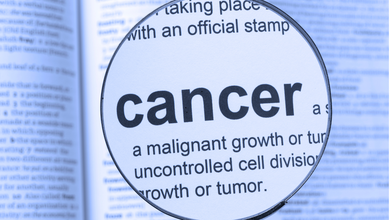- Health Conditions A-Z
- Health & Wellness
- Nutrition
- Fitness
- Health News
- Ayurveda
- Videos
- Medicine A-Z
- Parenting
You Are Making Your Eyesight Worse With This Simple Habit!

Credit-Canva
Eye care is one of the most sensitive subjects for people. Not only is your life largely dependent on your eyesight but even the slight loss of it can cause you significant worries and be a cause of major lifestyle changes. While eyes are sensitive, they have mechanisms in place to protect themselves! Your eyelashes are not just meant to sit there and look pretty, but they, along with your eyelids help keep the dirt, dust, and even harmful bright light away from your eyes. We spoke to doctor Dr. Ashwin Santosh Shetty, Consultant Ophthalmology, Aster CMI Hospital to understand what causes your eyesight to weaken and what are some factors of it that we may not know.
While there are many things that can affect your eyes, one of the reasons why you may cause your eyesight to weaken is by rubbing your eyes! Doctors often urge people to keep their hands away from their eyes because it can be harmful, Dr Santosh tells us that rubbing your eyes, even when irritated or itchy is not ideal. Your hands come in contact with numerous surfaces, accumulating dirt and germs. Rubbing transfers these contaminants to the eyes, increasing the risk of allergies and infections. He also goes on to add, “Constant eye rubbing leads to weakening of the cornea, especially in younger people. That is a big risk factor in the cornea becoming weak and developing keratoconus and those kind of problems. So, that is the reason we tell them not to rub their eyes.”
Can Pollution Make Your Eyesight Worse?
Dr. Santosh tells us that it could, but not directly. We all know that pollution affects our body, it doesn’t exactly cause direct issues unless you are allergic to pollution. Pollution introduces harmful substances into the air, water, and food, which impacts various bodily functions, including vision. Air pollution, in particular, can cause allergies and eye irritation, leading to eye rubbing and further complications. Therefore, pollution has an indirect but significant impact on eye health.
As mentioned above, your eye has inbuilt protection models to help itself, like so it has the cleaning system as well, which is tears. Tears keep your eyes moist and wash away dirt, dust, and anything else that gets past your eyelashes and eyelids. They also help fight germs. According to max healthcare, airborne pollutants can cause issues to your tear functioning which keeps your eyes lubricated, it leads to dryness and irritation.
Can Glycerin and Other Eye Drops Be Useful Here?
Many people often opt for over-the-top counter medication like cooling eye drops to keep the functioning going and reduce the itchiness and dryness. But Dr. Santosh suggests it is better to visit a doctor if you are facing such issues. According to him, Glycerine is not recommended for direct use in the eyes. If you experience eye irritation or itchiness, it's crucial to consult an eye doctor. "For high to severe itching, we may even need to use short course steroids. But these glycerine coolants and all are not recommended without prescription. If you have a problem, go to an eye doctor. And depending upon the severity, they will treat you and take the medicines for only as long as recommended. "
What Can You Do To Protect Your Eyes?
More young people are wearing glasses these days, but it's not because of anything new. According to Dr. Santosh, this is simply a result of more people focusing on studies. Eyesight problems are also common, especially as people age. "It usually starts around 39 to 41 years old, which is earlier than expected, but it's a natural process," he explains. Some days, near vision may seem fine, while on other days, it may feel blurry, which is normal. Younger people may also have minor vision issues but might not wear glasses for them. Dr. Santosh advises seeing an eye doctor to find out the exact cause and get the right treatment.
Why Indians Face Higher Fatty Liver Risk Than Europeans, Expert Explains

Credit: Unsplash
While it’s no secret that alcohol takes a toll on the body, particularly the liver, long-term health issues can arise even for light drinkers. This begs the question: how do Europeans seem to handle their booze so much better? Dr Harsh Vyas, a radiologist from Gujarat, recently tackled this on Instagram.
He compared two 37-year-old patients: an Italian who drinks regularly and an Indian teetotaler. Surprisingly, the Italian’s liver was in better shape than the Indian man’s, who was struggling with fatty liver disease despite never touching a drop of alcohol.
Here are some reasons he claims are the reason behind the massive difference between both men:
Genetic Efficiency
According to Dr. Vyas, the primary reason Europeans often appear to have a higher tolerance for alcohol than Indians is how their bodies process toxins at a molecular level.
Your body uses two main enzymes to break down alcohol. Think of them like a two-step cleaning crew which include Alcohol dehydrogenase (ADH) which converts alcohol into acetaldehyde, a highly toxic substance and Aldehyde dehydrogenase (ALDH) that converts that toxin into harmless acetic acid (vinegar), which the body can easily flush out.
In European livers, both enzymes usually work at peak efficiency. The toxic intermediate (acetaldehyde) is neutralized almost as fast as it is created. But in Asian populations, the activity of these enzymes is often lower. This means the toxic metabolites don't just pass through; they linger in the bloodstream for a much longer duration.
Because these toxins stay in the system of an Indian person longer, they cause more oxidative stress and inflammation. This explains why even a "teetotaler" in India might develop fatty liver from other metabolic factors (like diet or sugar), while a moderate European drinker might show less immediate liver damage - their genetics act as a more efficient "waste management" system.
Diet
Talking about food habits, Dr Vyas highlights a significant contrast between the Mediterranean-style habits common in Europe and the typical nutritional patterns found in India. He explains that Europeans generally benefit from a diet rich in complex carbohydrates, high-quality proteins, and healthy fats derived from sources like seafood and olive oil.
These nutrients provide the liver with the essential building blocks it needs for repair and protection against inflammation. In contrast, many Indian diets rely heavily on refined carbohydrates and often lack sufficient protein and healthy essential oils.
This high intake of refined sugars and flours can lead to insulin resistance, causing the liver to store excess energy as fat. Consequently, even an Indian teetotaler may develop a fatty liver due to these metabolic stressors, whereas a European's liver might remain more resilient despite moderate alcohol consumption because it is better supported by their overall nutritional intake.
Exercise
Using his Italian patient as an example, the doctor noted a commitment to daily exercise lasting 30 to 40 minutes, supplemented by walking 5 to 6 kilometers every single day. This level of consistent movement is far less common among the Indian population, where regular workouts are often neglected.
Dr Vyas concluded that while even small amounts of alcohol remain toxic to the human body, the superior lifestyle of many Europeans, combined with genetic advantages, a nutrient-dense diet and high physical activity, creates a "buffer" that helps their systems compensate for the damage.
In contrast, the sedentary habits and nutritional gaps seen in many Indian lifestyles leave the liver far more vulnerable to disease, even in those who avoid alcohol entirely.
Experts Warn Of The Dangers Of Suicide Ideation: All You Need To Know

Credit: Unsplash
Suicidal ideation refers to thinking about or planning one's own death. In simple terms, it involves thoughts of dying or formulating plans to end one's life. While it is not a formal medical diagnosis, it is a serious symptom that can lead to suicide.
Suicidal ideation is generally divided into two categories which include passive ideation, defined as thinking about death or wishing one were dead without a specific plan to act as well as active ideation, defined as formulating specific, elaborate plans to carry out the act.
The active ideation stage is particularly dangerous as it moves from merely thinking of suicide towards self-harm.
What Leads to Suicidal Thoughts?
There is no single cause for these thoughts; rather, they are often the result of complex, overlapping factors. One therapist on Reddit shared a poignant perspective, describing the urge as an "act of mercy" from a tired mind.
She explained: "Suicidal parts are also deeply perceptive. They see suffering that others overlook. They recognize when other coping strategies are failing and, in their exhaustion, believe that the only mercy left is to stop everything altogether".
Common contributing factors include:
- Biological Factors: Genetics and brain development.
- Demographics: Age, education, employment, and socioeconomic status.
- Environmental Stress: Negative life events, interpersonal relationship issues, and chronic stress.
- Identity: Challenges related to sexual orientation or being transgender/non-binary.
- Health Issues: Substance use disorders or underlying mental health conditions like depression, anxiety, or psychosis.
The Warning Signs You Need To Keep An Eye Out For
Early intervention is key. Some of the most common warning signs include:
- Feeling empty, trapped, or hopeless
- Feeling extremely sad, anxious, or angry
- Talking about wanting to die or being a burden to others
- Preparing for suicide, such as making a plan or researching methods of suicide
- taking dangerous risks, such as driving fast
- displaying large shifts in mood
- wanting to give away your possessions or treating people as if you might not see them again
- withdrawing from friends
- eating or sleeping significantly more or less
- using drugs or alcohol more often
Prevention and Support
Studies says we cannot stop our brain to forming such thoughts, noticing the signs early can prevent drastic outcomes. Support is available at both professional and personal levels. Here is what you can do if you are concerned about yourself or someone you know:
- Seek Professional Help: Enroll in counseling or consult medical institutions specializing in mental health.
- Find Community: Isolation often worsens ideation. Joining support groups can help individuals feel less alone.
- Self monitoring: Keeping track of situations you find stressful and how you handle them. Also regularly journaling helps you understand and manage your feelings.
- Stress Management: Incorporate physical activity and maintain open communication with trusted friends.
- Emergency Action: If you or someone you know is in immediate danger, call emergency services such as 022 2754 6669 or local helplines immediately.
According to the National Crime Records Bureau (NCRB), India recorded 171,418 suicides in 2023. The data reveals that daily wage earners remain the most affected group, followed by students and young adults. Geographically, Maharashtra, Tamil Nadu, Madhya Pradesh, and Karnataka account for the highest share of these cases.
Cervical Cancer Is The Most Common Cancer In Indian Women, Says Doctor

Credits: Canva
Cancer remains one of the most feared diagnoses worldwide. Medical bodies classify more than 200 cancers into five broad groups depending on where they originate. These include carcinomas that begin in skin or organs, sarcomas in connective tissues, leukemia in blood-forming tissues, lymphomas and myeloma in immune cells, and cancers of the brain and spinal cord.
While classification helps doctors understand disease behavior, what matters more for the public is which cancers are actually increasing around them.
During a recent podcast appearance, senior surgical oncologist Dr Jayesh Sharma discussed how India’s cancer pattern has changed over the years and which types are most common today. The video is also available on his Instagram channel.
Breast Cancer Now Leads The List
“A few years ago, cervical cancer was the most common cancer among Indian women, and breast cancer was second,” he explained. “Right now, breast cancer holds the top spot.”
Experts attribute the shift to multiple lifestyle changes. Increasing life expectancy, late pregnancies, reduced breastfeeding, obesity and physical inactivity have all played a role.
Breast cancer risk rises with age, menopause, alcohol use and family history. However, survival rates improve dramatically when detected early. Regular self-awareness, clinical examinations and mammography remain the strongest tools.
Oral Cancer Driven By Tobacco Use
The second most common cancer in India is oral cancer. The primary reason is tobacco consumption in smoked and smokeless forms such as gutka and paan.
India carries one of the world’s highest burdens of oral cancer largely because chewing tobacco remains common in many regions. Unlike several other cancers, this one is largely preventable. Eliminating tobacco exposure sharply reduces risk.
Cervical And Lung Cancer Compete For Third Spot
Cervical cancer, once the leading cancer among women, still remains a major public health concern. It is caused mainly by persistent HPV infection but is also one of the most preventable cancers.
Vaccination, safe sexual practices and routine screening tests such as Pap smear or HPV testing significantly lower the risk.
Lung cancer ranks close behind and is strongly linked to smoking and passive smoke exposure. Air pollution contributes, but tobacco remains the dominant cause. Quitting smoking is considered the single most powerful protective step.
Colon Cancer Rising In Urban India
Colon cancer now rounds out the top five cancers in the country. Doctors are seeing increasing cases particularly in urban populations.
Low fiber diets, high processed food intake, sedentary lifestyles, obesity, alcohol and metabolic disorders all contribute. Screening after age 45 to 50 can detect precancerous polyps early and prevent disease progression.
Lifestyle Factors Behind Most Cases
Many people assume cancer is purely genetic, but experts say daily habits play a significant role. Common modifiable risks include tobacco exposure, central obesity, alcohol use, poor diet, inactivity and chronic inflammation.
The oncologist emphasized that awareness should not create panic. “Early detection does not create fear; it creates survival. Prevention is always easier than treatment.”
The message is simple. Cancer patterns are changing, but many of the risks remain within human control. Small preventive steps taken early can significantly reduce disease burden and improve outcomes.
© 2024 Bennett, Coleman & Company Limited

